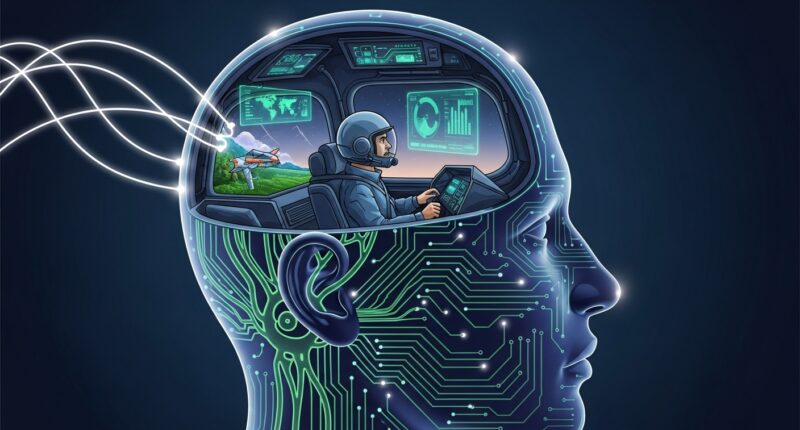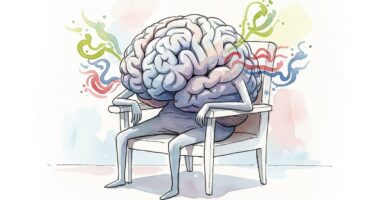Scientists have developed a computer model that simulates how brain circuits make decisions and adapt when rules change, potentially laying the groundwork for more precise treatments for mental health disorders.
Research published in Nature Communications describes CogLinks, a model that builds biological realism into its design by mirroring how real brain cells are connected and coding for how they assign value to ambiguous and incomplete observations about the external environment.
“Uncertainty is built into the brain’s wiring,” said Michael Halassa, a professor of neuroscience at Tufts University School of Medicine. “Picture groups of neurons casting votes—some optimistic, some pessimistic. Your decisions reflect the average.”
The brain makes thousands of decisions under uncertainty every day. When the brain’s ability to judge context or assign meaning falters, thoughts and behaviour can go astray. In psychiatric disorders ranging from attention-deficit/hyperactivity disorder to schizophrenia, the brain may misjudge how much evidence to gather before acting or fail to adjust when rules change based on new information.
Understanding those misfires has long challenged scientists. The brain communicates through the electrical activity of single neurons, but fMRI scans used to study brain activity in people track blood flow rather than individual brain cells.
Unlike many artificial intelligence systems that act like black boxes, CogLinks shows researchers exactly how its virtual neurons link structure to function. Scientists can map how this virtual brain learns from experience and pivots based on new information.
Halassa and colleagues at Massachusetts Institute of Technology used CogLinks to explore how brain circuits coordinate flexible thinking. Like a flight simulator for the brain, CogLinks allowed the researchers to test what happens when key decision-making circuits go off course.
When they weakened the virtual connection between two simulated brain regions—the prefrontal cortex and the mediodorsal thalamus—the system defaulted to slower, habit-driven learning. That result suggests this pathway is essential for adaptability.
The team then conducted a companion fMRI study to test if those predictions held true in people. Volunteers played a game in which the rules unexpectedly changed. The prefrontal cortex handled planning and the striatum guided habits, but the mediodorsal thalamus lit up when players realised the rules had shifted and adjusted their strategy.
The imaging confirmed what the model had forecast: the mediodorsal thalamus acts as a switchboard linking the brain’s two main learning systems—flexible and habitual—helping the brain infer when context has changed and switch strategies accordingly.
“One of the big questions in psychiatry is how to connect what we know about genetics to cognitive symptoms,” said Mien Brabeeba Wang, the lead author of the CogLinks study and an MIT doctoral student in Halassa’s lab.
“Many schizophrenia-linked mutations affect chemical receptors found throughout the brain,” said Wang. “Future uses of CogLinks may help us see how those widespread molecular changes could make it harder for the brain to organise information for flexible thinking.”
Halassa hopes the research helps lay the groundwork for algorithmic psychiatry, in which computer models help reveal how mental illness emerges from changes in brain circuits, identifying biological markers to precisely target treatments.











